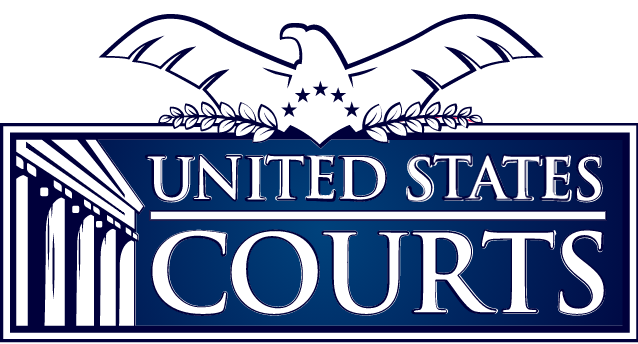Sealed U.S. Court Records Exposed In SolarWinds Breach
The ongoing breach affecting thousands of organizations that relied on backdoored products by network software firm SolarWinds may have jeopardized the privacy of countless sealed court documents on file with the U.S. federal court system, according to a memo released Wednesday by the Administrative Office (AO) of the U.S. Courts.

The judicial branch agency said it will be deploying more stringent controls for receiving and storing sensitive documents filed with the federal courts, following a discovery that its own systems were compromised as part of the SolarWinds supply chain attack. That intrusion involved malicious code being surreptitiously inserted into updates shipped by SolarWinds for some 18,000 users of its Orion network management software as far back as March 2020.
“The AO is working with the Department of Homeland Security on a security audit relating to vulnerabilities in the Judiciary’s Case Management/Electronic Case Files system (CM/ECF) that greatly risk compromising highly sensitive non-public documents stored on CM/ECF, particularly sealed filings,” the agency said in a statement published Jan. 6.
“An apparent compromise of the confidentiality of the CM/ECF system due to these discovered vulnerabilities currently is under investigation,” the statement continues. “Due to the nature of the attacks, the review of this matter and its impact is ongoing.”
The AO declined to comment on specific questions about their breach disclosure. But a source close to the investigation told KrebsOnSecurity that the federal court document system was “hit hard,” by the SolarWinds attackers, which multiple U.S. intelligence and law enforcement agencies have attributed as “likely Russian in origin.”
The source said the intruders behind the SolarWinds compromise seeded the AO’s network with a second stage “Teardrop” malware that went beyond the “Sunburst” malicious software update that was opportunistically pushed out to all 18,000 customers using the compromised Orion software. This suggests the attackers were targeting the agency for deeper access to its networks and communications.
The AO’s court document system powers a publicly searchable database called PACER, and the vast majority of the files in PACER are not restricted and are available to anyone willing to pay for the records.
But experts say many other documents stored in the AO’s system are sealed — either temporarily or indefinitely by the courts or parties to a legal matter — and may contain highly sensitive information, including intellectual property and trade secrets, or even the identities of confidential informants.
Nicholas Weaver, a lecturer at the computer science department at University of California, Berkeley, said the court document system doesn’t hold documents that are classified for national security reasons. But he said the system is full of sensitive sealed filings — such as subpoenas for email records and so-called “trap and trace” requests that law enforcement officials use to determine with whom a suspect is communicating via phone, when and for how long.
“This would be a treasure trove for the Russians knowing about a lot of ongoing criminal investigations,” Weaver said. “If the FBI has indicted someone but hasn’t arrested them yet, that’s all under seal. A lot of the investigative tools that get protected under seal are filed very early on in the process, often with gag orders that prevent [the subpoenaed party] from disclosing the request.”
The acknowledgement from the AO comes hours after the U.S. Justice Department said it also was a victim of the SolarWinds intruders, who took control over the department’s Office 365 system and accessed email sent or received from about three percent of DOJ accounts (the department has more than 100,000 employees).
The SolarWinds hack also reportedly jeopardized email systems used by top Treasury Department officials, and granted the attackers access to networks inside the Energy, Commerce and Homeland Security departments.
The New York Times on Wednesday reported that investigators are examining whether a breach at another software provider — JetBrains — may have precipitated the attack on SolarWinds. The company, which was founded by three Russian engineers in the Czech Republic, makes a tool called TeamCity that helps developers test and manage software code. TeamCity is used by developers at 300,000 organizations, including SolarWinds and 79 of the Fortune 100 companies.
“Officials are investigating whether the company, founded by three Russian engineers in the Czech Republic with research labs in Russia, was breached and used as a pathway for hackers to insert back doors into the software of an untold number of technology companies,” The Times said. “Security experts warn that the monthslong intrusion could be the biggest breach of United States networks in history.”
Under the AO’s new procedures, highly sensitive court documents filed with federal courts will be accepted for filing in paper form or via a secure electronic device, such as a thumb drive, and stored in a secure stand-alone computer system. These sealed documents will not be uploaded to CM/ECF.
“This new practice will not change current policies regarding public access to court records, since sealed records are confidential and currently are not available to the public,” the AO said.
James Lewis, senior vice president at the Center for Strategic and International Studies, said it’s too soon to tell the true impact of the breach at the court system, but the fact that they were apparently targeted is a “a very big deal.”
“We don’t know what the Russians took, but the fact that they had access to this system means they had access to a lot of great stuff, because federal cases tend to involve fairly high profile targets,” he said.
Source: krebsonsecurity.com
 Reviewed by Anonymous
on
4:02 PM
Rating:
Reviewed by Anonymous
on
4:02 PM
Rating:





